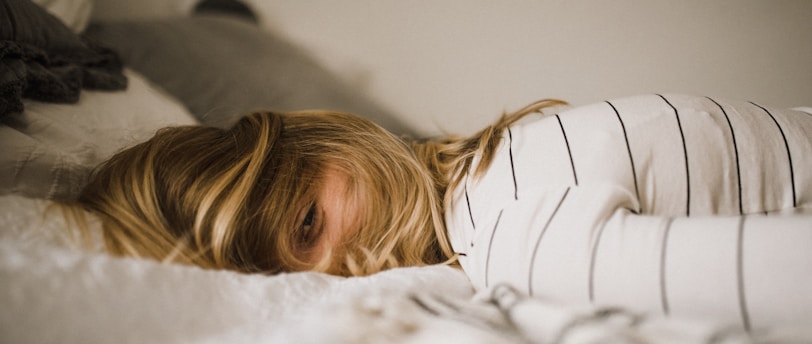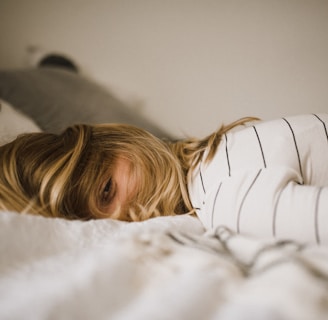Waking Up Drenched in Sweat? Your Hormones Might be Trying to Tell You Something
10/12/20252 min read


Night Sweats: What’s Really Going On?
Waking up sweaty and uncomfortable? It’s not just your blankets or the room temp. This is one way menopause shows up.
If night sweats are showing up, hormones are often the reason. During perimenopause and menopause, estrogen and progesterone start to dip, and your body’s internal thermostat gets thrown off. That’s why you might wake up overheated, even when the room’s cool.
But hormones aren’t the only factor. Stress, certain medications, infections, and even diet can play a role too. If they’re happening often, it’s worth exploring what’s driving them.
Why Hormones Are Often the Culprit
Estrogen and progesterone don’t just regulate your cycle; they help your body manage temperature. When these hormones start to dip (hello menopause), your internal thermostat can go haywire.
That’s why you might wake up feeling overheated, even in a cool room. It’s not random, it’s your body adjusting to a new hormonal rhythm.
What Else Can Cause Night Sweats?
Hormones are a big player, but they’re not the only one. Other triggers include:
Stress & anxiety — Your nervous system stays active even while you sleep.
Diet — Spicy foods, alcohol, caffeine, and sugar can all rev up your system.
Medications — Antidepressants, diabetes meds, and hormone therapies may list sweating as a side effect.
Health conditions — Infections, thyroid issues, and certain cancers can show up as night sweats.
If you’re unsure what’s behind yours, it’s worth checking in with your provider.
What You Can Do About It
You don’t have to just “deal with it.” There are ways to feel better, and sleep better.
🔹 Hormone Replacement Therapy (HRT)
HRT helps restore balance and ease symptoms like night sweats, hot flashes, and brain fog. It’s one of the most effective options for menopause-related changes.
🔹 Lifestyle Tweaks
Keep your room cool and your bedding breathable.
Cut back on alcohol, caffeine, and spicy foods.
Try gentle movement like yoga or walking.
Practice stress-reducing habits like mindfulness or deep breathing.
Sleep Shouldn’t Be a Struggle
Night sweats are common, but they’re not something you have to put up with. Whether it’s hormones, stress, or something else, understanding the cause is the first step toward relief.
Let’s help you sleep cooler, feel clearer, and wake up more like yourself.
Contact
319-600-6173
ccnp@connectedcarenp.com
308 1st Ave Suite 125
Coralville, IA 52241


